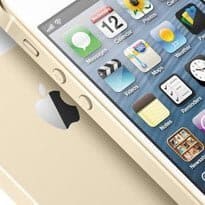FDA issues rules on mobile health apps
- 3 October 2013

The US Food and Drug Administration has issued its final guidance on how it will regulate mobile health apps.
The FDA will focus on health apps that turn a mobile platform into a regulated device, such as an ECG or blood pressure cuffs linked to smart phones, and could potentially pose a risk to patients if they don’t work properly.
Most health apps are free and perform simple functions, like helping users keep track of their meals or calories burned exercising. But a growing number perform tests or monitor patient vital signs.
The guidance, released this week, comes more than two years after the FDA published its draft guidelines in July 2011, which was opened up for a 90 day consultation.
The FDA received more than 130 comments on the draft guidance, where industry respondents overwhelmingly supported a customised, risk-based approach.
The FDA’s guidance says the majority of mobile apps pose minimal risk to consumers and will not be regulated.
However, apps that “transform a mobile platform into a regulated medical device”, and could pose a risk to patients if they “do not work as intended”, will be regulated.
Jeffrey Shuren, director of the FDA’s Centre for Devices and Radiological Health said that the aim of the new policy was to “protect patients while encouraging innovation”.
“Some mobile apps carry minimal risks to consumer or patients, but others can carry significant risks if they do not operate correctly,” he said.
“We have worked hard to strike the right balance, reviewing only the mobile apps that have the potential to harm consumers if they do not function properly.”
“Our mobile medical app policy provides app developers with the clarity needed to support the continued development of these important products,” said Shuren.
Ewan Davis, co-founder of the Healthcare App Network for Development and Innovation (HANDI) told EHI that the UK could expect a similar approach.
“There are a fair number of bureaucratic steps to harmonisation, but this is the direction of travel,” he said.
“While FDA has no jurisdiction in Europe we can expect a similar approach in due course from the European Medicines Agency and the Medicines and Healthcare products Regulatory Agency. Also for any UK developer that has US sales aspiration (as many do) will have to meet FDA requirements.”
HANDI is holding is inaugural Handi Health Apps Conference as part of EHI Live, 5-6 November.
The FDA will focus on apps that are used as an accessory to regulated medical devices or transform a tablet or smartphone into a regulated medical device such as functioning as an ECG machine to detect abnormal heart rhythms.
“Examples of displays of patient-specific medical device data include: remote display of data from bedside monitors, display of previously stored EEG waveforms, and display of medical images directly from a picture archiving and communication system server, or similar display functions that meet the definition of medical device data systems,” says the guidance.
Apps where the tablet or smartphone is used as an accessory, such as an app that provides the ability to control inflation and deflation of a blood pressure cuff through a mobile platform, will also be regulated.
All mobile medical apps that undergo FDA review will be assessed by the same regulatory standards and risk-based approach that the agency applies to other medical devices.
The FDA says mobile health apps are becoming increasingly popular, and the agency has cleared around 100 health apps over the past decade, 40 of those in the past two years.
FDA officials said Monday they have already approved 75 of these "mobile medical applications," including 25 in the last year.
The agency estimates that 500m smartphone users worldwide will use some type of health app by 2015.
HANDI Health Apps is the first national conference dedicated to health and care apps and lightweight digital tools to take place in the UK and a “must attend” event for app developers, health and care professionals, managers and commissioners seeking to understand how this new generation of digital tools can support the delivery of efficient, patient centred care. This year, EHI Live is free for all visitors to attend.


